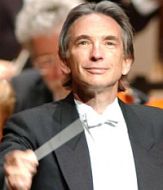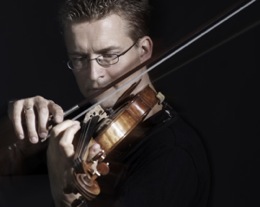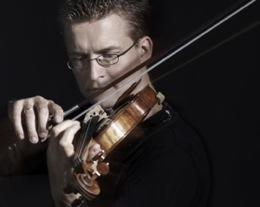(Washington, D.C.) — Lately, here in the nation’s capital, we’ve being seeing much of a certain leader from San Francisco. She’s usually pictured at a podium, ominously wielding a piece of carved wood, aiming for radical change, and threatening to whack anyone who doesn’t stay in step.
House Speaker Nancy Pelosi was in the Concert Hall Wednesday night when the San Francisco Symphony performed at the Kennedy Center, so audiences may have been surprised when another famous leader from the Bay Area, Michael Tilson Thomas, conducted with such subtlety and grace.
This mild-mannered, late-middle-aged man is Tilson Thomas? The fiery conductor who founded that experimental orchestra down in Florida and records stormy Mahler symphonies?

Perhaps listeners in the Northeast have an outmoded view of Tilson Thomas. If so, Wednesday night’s concert was a splendid reality check. Washington, D.C. was the fourth leg of the orchestra’s five-city tour, and by now, the conductor and his musicians have the program down to a science. The pieces, programmed by the orchestra in back-to-back seasons, seem handpicked to demonstrate how well the musicians play as a unit, while sneaking in a star-turn for every section.
The Kennedy Center program was identical to the weekend series presented at Davies Symphony Hall March 4-7. (A few tour dates alternate with Mahler’s Symphony No. 2.) Sometimes there’s a fine line between autopilot and knowing the music cold, and thankfully, this performance was the latter — mostly. The program opened with Victor Kissine’s commission Post-scriptum. The Russian expatriate is fortunate: So many composers lament that their new works debut without proper rehearsal time. Ten performances in, this piece is sounding terrific. Kissine says the work is inspired by Ives’ The Unanswered Question. It’s not eerily similar, but it is eerie, and builds tension through a series of six repeated tones. The signature flutes of Ives’ piece are replaced by the more haunting crotales, small cymbals stroked with a bow rather than mallets. The percussionists stayed busy deploying an arsenal of sonic effects, while Tilson Thomas kept the overall sound balanced.

The soldout crowd in the Kennedy Center’s Concert Hall applauded politely. No doubt for many, the main draw was Tchaikovsky’s Violin Concerto with German violinist Christian Tetzlaff as soloist.
It takes some humility for an orchestra to head out on tour and play the role of session musicians for a violinist of Tetzlaff’s stature. The strategy here was not a gracious give-and-take. More like, Tetzlaff kept his foot pressed to the gas pedal while Tilson Thomas steered. The conductor kept careful watch on the violinist, who never opened his own eyes except to rip shreds from his bow.
Tetzlaff’s cadenzas were particularly jaw-dropping; even when throwing down quadruple stops, his intonation remained remarkably clear. He put a folksy twist on the third movement, and kept his tone straight down the center between overt sweetness and rustic Romanticism.
Listening to the first half of the concert, it was possible to think that the SFS was too conservative, that Tilson Thomas held his 118 musicians back in order to maintain unison and a uniform sound. Not so, as demonstrated by the works chosen for Act 2: Ravel’s Valses nobles et sentimentales and Liszt’s tone poem Tasso: Lamento e Trionfo.
Both pieces derive their power from unexpected swells in dynamics. With just a slight increase in animation from Tilson Thomas, the orchestra would go for broke, but a measure later, retract to near silence. The winds had a field day in Ravel’s work, particularly principal flute Patrick Day. Played well like this, the Waltzes are a serenade for the tipsy dancers of a bygone era. The strings swooned with all the melodrama of a vintage film score.
Tasso, by contrast, is a more serious work originally written for the centennial of the poet Goethe’s birth. Appropriately, Tilson Thomas had the brass sounding like a full-voiced German choir. The final crescendo easily earned a standing ovation. Tilson Thomas returned to the podium to offer an encore: The Huntresses, from Delibes’ balletSylvia. Tilson Thomas said the fanfare was “In honor of the brave women of the world.” A nod to Pelosi? Perhaps. But it was also in honor of the horns, the only instrument that had been denied a solo in this wonderful, varied program.

